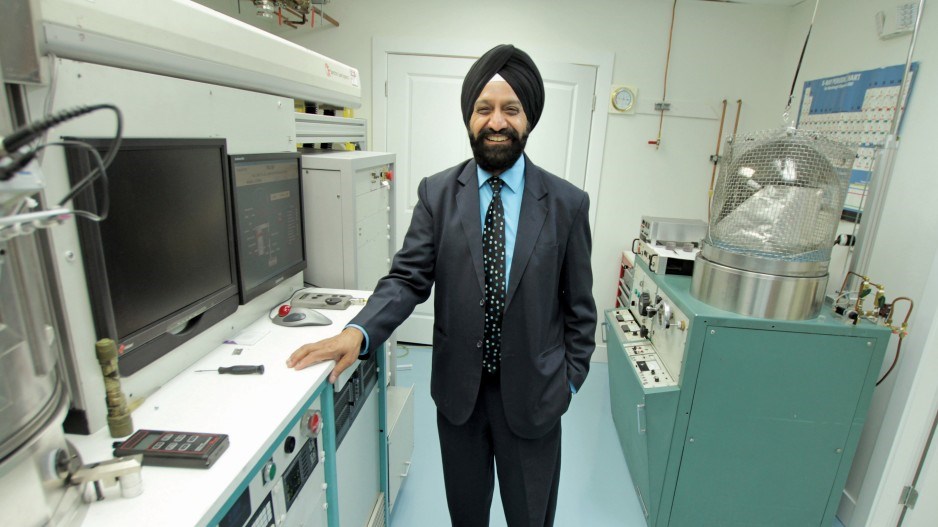Homeowners aren’t the only people Surrey is pulling away from Vancouver right now.
The city is also enticing some of the world’s brightest minds to its Innovation Boulevard while also luring new companies with relatively inexpensive commercial real estate costs.
Vinder Jaggi, who has worked for IBM and NASA during his 36-year career in the semiconductor industry completing various defence contracts, recently helped set up a spinoff company from Triumf, which is a national laboratory based out of the University of British Columbia's (UBC) south campus owned and operated by a national consortium of universities, UBC included. Triumf comprises an array of research fields including accelerator physics, molecular and materials science, nuclear medicine and particle physics.
Founded in 1968, Micromatter Technologies Inc., which makes diamond-like carbon foil, was acquired in 2009 by Triumf’s Advanced Applied Physics Solutions (AAPS) department. Micromatter operated within AAPS – which also acts as Triumf’s commercialization company – until 2014, when Jaggi decided it was ready to enter the private sector. The only problem was that finding affordable office space at UBC was out of the question.
“I was running Micromatter for two years in the same space,” Jaggi said. “But it was a government lab so we had to move on one day. And I was thinking of renting a space at UBC but it was quite expensive. Then I came to Surrey and I saw Innovation Boulevard.”
Jaggi’s carbon foil is the only available product of its kind in the world, selling to over 50 countries. It’s used in computer hard drives, for calibration of X-ray fluorescence systems, by pollution monitoring agencies, in industrial laboratories and by auto manufacturers. The allure of the product is its extreme durability under stress and heat.
Jaggi said the square footage costs at UBC were just too much, and he couldn’t find anything in Richmond either, so he packed up and moved his business to 130th Street in Surrey. He now has a 1,200-square-foot laboratory space.
“I wanted to go to a place where I could stay for the next five or 10 years, because it takes a lot of money to build the cooling systems and also the gas systems, and also the moisture-free environment,” he said.
Surrey Mayor Linda Hepner said Micromatter’s relocation highlights the city’s game plan to remake Surrey into a science and technology hub for the public and private sectors.
“When a firm like Micromatter chooses to set up shop in Surrey, it’s clear we are doing all the right things to attract high-tech and value-added business to the city,” Hepner said in an email.
The city has always prided itself on its ability to attract companies with its incentives and its “can-do attitude to work with businesses looking to locate to Surrey,” she said, adding that last year, 2,300 new businesses opened up shop in the city.
Since opening three years ago, Innovation Boulevard has secured $45 million in grant funding, including $36 million for a national centre of excellence to study technology and its potential effects on aging. There has also been $15 million injected into related infrastructure projects, which amount to 17,000 square feet of new lab space in the city.
Don Furseth, interim president and CEO for AAPS, said Micromatter is a good example of how science can make its way into the business world.
Jaggi’s “entrepreneurial spirit has taken a world-leading in-house capability and transformed it into a growing B.C. company delivering advanced products to customers worldwide,” Furseth said in an email.




